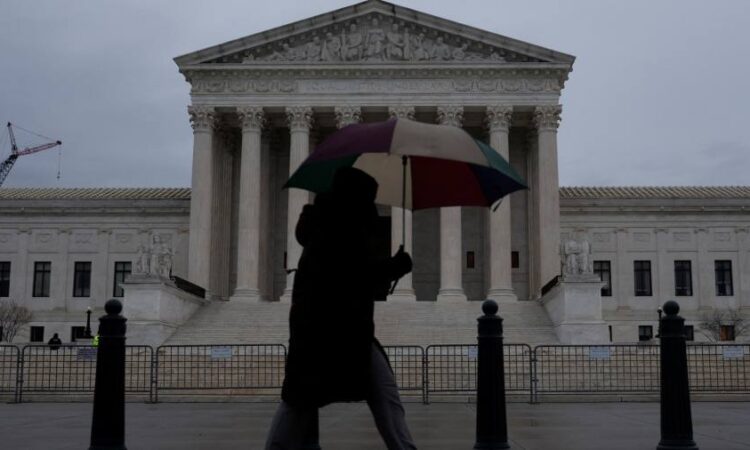
The US Supreme Court said it has not found the person responsible for leaking the draft of a decision that overturned the landmark Roe vs Wade ruling guaranteeing the constitutional right to abortion.
The court has been investigating what it described as “one of the worst breaches of trust in its history”, when Politico published the leaked draft opinion signed by Justice Samuel Alito in Dobbs vs Jackson Women’s Health Organization.
The unusual leak shook the court to its core, exacerbating fraught debates over its legitimacy. Protesters gathered in response and barricades were set up around the court’s building in Washington.
The ruling in Dobbs ultimately hewed closely to the leaked draft, as a majority of the justices overturned Roe nearly two months later in what remains one of the most dramatic rulings in the court’s recent history.
In its statement, the court on Thursday said “the extraordinary betrayal of trust” led to a months-long investigation managed by its marshal, which included interviews with nearly 100 employees. The probe remains ongoing.
The marshal in a report said that forensic evidence failed to show who leaked the draft, and that it was “unlikely” that the court’s IT systems had been hacked by an external actor.
“The pandemic and resulting expansion of the ability to work from home, as well as gaps in the court’s security policies, created an environment where it was too easy to remove sensitive information from the building and the court’s IT networks, increasing the risk of both deliberate and accidental disclosures of court-sensitive information,” the marshal said.
Michael Chertoff, a former secretary of homeland security, was asked to assess the marshal’s investigation. He said in an accompanying statement that “while there is not sufficient evidence at present for prosecution or other legal action, there were important insights gleaned from the investigation that can be acted upon to avoid future incidents”.
John Roberts, the chief justice, has also launched a review of the court’s security protocols.
The marshal said investigators were unable to analyse all relevant event logs “because at the time the system lacked substantial logging and search functions”. For instance, many printers were not connected to the court’s networks, limiting their log history.
Investigators also found that several employees admitted to violating the court’s confidentiality policies, in some case talking to their spouse or partner about the draft opinion and vote count.






